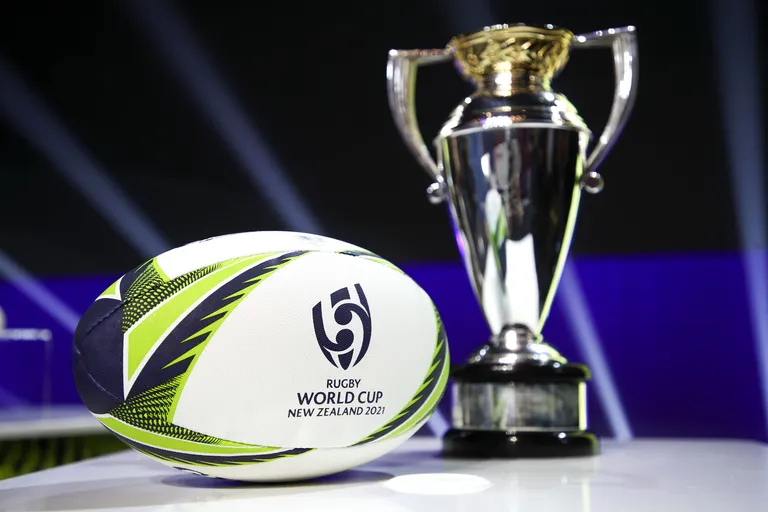In the multitude of debates that concern rugby, perhaps none is more heated for rugby fans than which rugby tournament is the best. The obvious contenders for the crown are the Rugby World Cup, the Six Nations Championship, and the Rugby Championship. Fans of Rugby Sevens would wager that the HSBC World Rugby Sevens Series belongs in the conversation while northern hemisphere fans would also argue that the British and Irish Lions Tour could give any of the above-mentioned competitions a run for their money. In as much as all the above arguments are valid, the evidence suggests that one tournament does indeed stand head and shoulders above the rest.
What is the most famous rugby tournament? The most famous rugby tournament in the world is undoubtedly the Rugby World Cup which is held every 4 years and features 20 of the top national rugby union teams in the world. The Rugby World Cup outshines its peers because of its scale and the quality of competition it offers as it features teams from the top competitions from each hemisphere – the Six Nations Championship (northern) and the Rugby Championship (south).

Formation
Talk of a global rugby competition can be traced back to the mid-20th century. The initial suggestion that was made in the 1950s was however shot down by a number of the top unions in the former International Rugby Football Board (IRFB).
A decade later, the idea was once again brought up by former Australia winger Harold Tolhurst and fellow countryman Jock Kellaher, who further suggested that the proposed tournament be held in their homeland. The IRFB however rejected the proposal for undisclosed reasons.
After another two decades, another two rugby unions – the Australia Rugby Union (now Rugby Australia) and the New Zealand Rugby Union (NZRU) both tabled the idea in 183 and 1984 respectively to no avail. The renewed effort nevertheless rekindled the dying ember of a long-deferred dream, paving the way for the eventual breakthrough.
In 1985, the member nations of the IRFB at the time (New Zealand, Australia, South Africa, France, England, Wales, Scotland, and Ireland) finally managed to pass a proposal via a majority vote. The maiden edition of the Rugby World Cup was jointly hosted by New Zealand and Australia with the former winning the inaugural title.
At the time of the writing of this article, there have been a total of nine Rugby World Cups. Only four nations have lifted the prestigious Webb Ellis Cup. New Zealand (1987, 2011, 2015), South Africa (1995, 2007, 2019), Australia (1991, 1999), and England (2003).
How the Winner Is Determined
The Rugby World Cup is traditionally held over a duration of a month and a half (six weeks). It is subdivided into two stages – a pool stage and a knockout stage – with the latter being subdivided into further three stages (Quarter-finals, Semi-finals and Final).
In order to qualify for the tournament, a national rugby union team needs either to feature in the top 12 in World Rankings to automatically qualify for placement in the four pools (A to D) or participate in qualifiers in order to fill the remaining 8 positions.
Normally, the top four national rugby union teams are each assigned to the four pools, followed by the next four and the next four in order to keep the pools competitive. A total of three teams from the Americas (north and south), two teams from Africa, five teams from Oceania, one team from Asia and eight teams from Europe participate in qualifiers to fill the last 8 positions.
During the pool stages of the tournament, each team competes against the four others and is awarded points according to their performance. Teams are awarded four points for a win and two points for a draw. Teams are also awarded a try bonus point if they score four or more tries against their opponents in a match and a losing bonus point if they lose by seven points or less.
The top two teams (those with the most points) from each pool advance to the knockout stages. The teams may be pitted against each other in the following way in the quarterfinals – the top two teams from pools A and B and the top two teams from pools C and D. For pools A and B, the overall winning team from pool A versus the runners-up from pool B and the overall winner from pool B versus the runners-up from team A.
A team then advances from each of the four quarter-final fixtures into the semi-finals where only two teams move on to the finals. The winner of the final is crowned the champion with the loser taking second place. The two losing teams from the semi-finals stage thereafter compete against each other to determine who takes third place.
Rugby World Cup v Six Nations Championship
Many historians argue that the success of the Six Nations Championship, which predates the Rugby World Cup by a little over a century contributed to the latter’s success. The competition which first started out as the Home Nations Championship in 1883, later expanded to include France in 1910 becoming the Five Nations Championship.

In 2000, the tournament expanded once more to include the only remaining top-tier national rugby union team at the time – Italy – to become the Six Nations Championship that is known and loved today.
One can argue that though the Six Nations Championship significantly predates the Rugby World Cup, the latter is still the superior tournament since only one northern hemisphere team has won the Webb Ellis Cup – England (2003).
Rugby World Cup v Rugby Championship
Though the Rugby Championship is the youngest of the three tournaments, the competition has quickly caught on and even rivaled its two peers on account of the quality of competition its members – New Zealand, South Africa, Australia, and Argentina – offer.
Much like the Six Nations Championship, the Rugby Championship first started out as the Tri Nations tournament before expanding to include Argentina in 2011. Of the four nations that have won the Rugby World Cup, three (New Zealand, South Africa, and Australia) have won the title at least twice, with the former two clinching it thrice.
It is for this reason that a segment of rugby fans often opine that the Rugby Championship is actually the best rugby tournament in the world since it more often than not reveals the team that has the best chance of winning the next edition of the Rugby World Cup. The evidence so far proves that it is hard to argue against that point.
